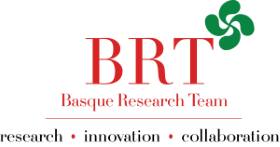Emerging political order: Use of the Basque language as an indicator of change
This project will explore the transformation of political order in the Basque Country by studying the use of the Basque language in the 20th and 21st centuries using process-tracing methodology. The first phase of research will explore the institutional and legislative history of language use in several regions of the Basque country in both Spain and France, while the second phase will include an ethnographic study of intergenerational language use. Language use will be studied as an indicator to measure change in the relationship between the state and society and to identify positive attractors leading to social transformation.
Study abroad in the Basque Country – Memory and Conflict: Dealing with the Past Constructively
Through a study abroad trip in the Basque country, we will examine how different actors and institutions address processes of dealing with the contentious past and how the politics of collective remembering impacts the dynamics of relationships among people on the ground. We will also examine various social practices and initiatives of counteracting the negative effects of divisive past through education, justice, policymaking, art and commemoration. This experiential learning program will begin in the winter 2016, by bringing American students to the Basque country where they will have an opportunity to learn about the said topics, engage with local scholars, leaders, diplomats and civil society representatives.
The Basque Approach to Cultural Interdependence: Lessons from the Bilbao Guggenheim
This project argues that the Basque case provides a unique approach to cultural interdependence, in that the Basque identity is able to both accommodate and interject itself into global cultural institutions. The focus will be on Basque relations with the global art market, looking particularly at the Bilbao Guggenheim. Drawing from Donald McNeill’s “McGuggenisation” (Political Geography, 2000) piece, the researcher will examine Joseba Zulaika’s “Crona de une Seduccion”, a critical narrative that details the Guggenheim negotiation process. By addressing the asymmetric influence and resources that the American institution has, the research will be able to acknowledge the dangers of falling victim to “McGuggenisation”, and argue for the strength of the Basque identity and influence in light of it. The argument will be linked to the permanent collection housed within the Basque Guggenheim. As “the accord signed between the Guggenheim and regional government was vague in specifying which artworks would be coming to Bilbao”, the impressive permanent collection stands as a testament of the Basque ability to blend the national and international (McNeill, 2000). The research will then take a look at the Basque influence in the global art market by noting the spread of Basque identity through representation in other international art institutions. The combination of international presence in the Basque Guggenheim and Basque presence in international art institutions will provide a strong argument in favor of the successful Basque approach to cultural interdependence.
Education, memory, and language
The purpose of this project is to do research on education, memory and language in the Basque Country by engaging International Relations majors that would expand their understanding of the Basque Country. With an understanding of the politics, culture, and Basque Country’s current standing in the world, students and practitioners coming out of Seton Hall will have a lasting knowledge of the Basque Country. This knowledge will follow them to whatever path they take.
The Basque Country as a model for economic progress and sustainable development
The research will focus on connecting the Basque economic and political success with the other cases on the larger scale. It is important to draw a positive example from the Basque region that can be used for a creation of sustainable models in other European countries. Moreover, the Basque region creates a positive precedent, showing the success of an individual community embedded in a larger, often constraining, context. It is crucial to focus on the analysis of the particular positive conditions leading to peace and economic success, contrary to traditional research strategies of crisis analysis through research of the conflict.
